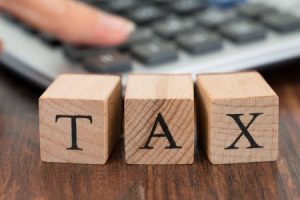
The IRS announced today another reprieve for taxpayers, delaying implementation of a new reporting threshold for third-party platform payments in 2023. The IRS also said it would phase in the new 1099-K threshold amount for tax year 2024.
That means companies such as eBay, Etsy, and PayPal – as well as payment apps – will not have to issue Form 1099-K to customers unless those firms processed the current threshold amount of $20,000 in more than 200 transactions in 2023.
A 2021 law had changed the reporting threshold to $600 (no matter how many transactions) effective for 2022; today’s announcement makes it the second year the tax agency issued a reprieve.
The IRS said it had received feedback from taxpayers, tax professionals, and payment processors and wished to reduce taxpayer confusion. It said the form would have been sent to many taxpayers who wouldn’t have been expecting one and might not have had a tax obligation.
The IRS will phase in the new threshold by lowering it to $5,000 for 2024. “Given the complexity of the new provision, the large number of individual taxpayers affected and the need for stakeholders to have certainty with enough lead time, the IRS is planning for a threshold of $5,000 for tax year 2024 as part of a phase-in to implement the $600 reporting threshold enacted under the American Rescue Plan (ARP),” it stated in an announcement on Tuesday.
The delay does not mean sellers who process under $20,000 a year in fewer than 200 transactions don’t have to report their income – the form is meant to assist the IRS in verifying the accuracy of taxpayer reporting.
In Tuesday’s IRS announcement, it stated:
“Reporting requirements do not apply to personal transactions such as birthday or holiday gifts, sharing the cost of a car ride or meal, or paying a family member or another for a household bill. These payments are not taxable and should not be reported on Form 1099-K.
“However, the casual sale of goods and services, including selling used personal items like clothing, furniture and other household items for a loss, could generate a Form 1099-K for many people, even if the seller has no tax liability from those sales.
“This complexity in distinguishing between these types of transactions factored into the IRS decision to delay the reporting requirements an additional year and to plan for a threshold of $5,000 for 2024 in order to phase in implementation. The IRS invites feedback on the threshold of $5,000 for tax year 2024 and other elements of the reporting requirement, including how best to focus reporting on taxable transactions.”
It added:
“Expanded information reporting, which will occur as the result of the change in thresholds for Form 1099-K, is important because it increases tax compliance and can reduce burden on taxpayers seeking to follow the law. The IRS believes that expansion must be managed carefully to help ensure that Forms 1099-K are issued only to taxpayers who should receive them. In addition, it’s important that taxpayers understand what to do as a result of this reporting, and that tax professionals and software providers have the information they need to assist taxpayers.”
The IRS also said it intends to update Form 1040 and related schedules for tax year 2024 to make the reporting process easier for taxpayers. “Changes to the Form 1040 series – the core tax form for more than 150 million taxpayers – are complex and take time; delaying changes to tax year 2024 allows for additional feedback,” it said.
Note that some states have lower Form 1099-K thresholds than at the federal level – Etsy’s help page shows that 4 states and the District of Columbia have a $600 reporting threshold; New Jersey has a $1000 reporting threshold; Illinois has a $1000-plus-4 transactions reporting threshold; and Arkansas has a $2500 reporting threshold.
eBay CEO Jamie Iannone heralded the news in an announcement on Tuesday. “Today’s announcement by the IRS is welcome news for millions of Americans who turn to online marketplaces to earn some extra money. These sellers and small businesses power the economy and help keep preloved goods out of landfills.” He also called on Congress to work towards a “permanent solution.”




